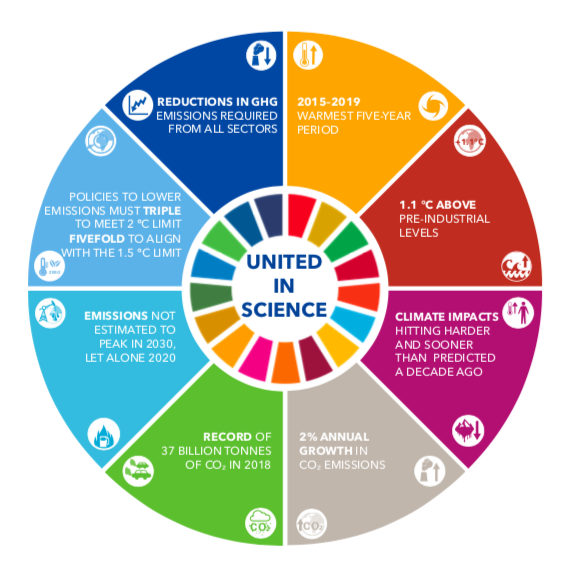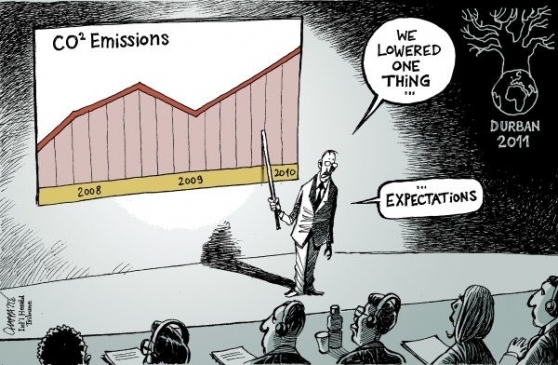The Climate Clock is Running Down -- Will the Circle Remain Unbroken?
 September 23, 2019 at 07:10PM
September 23, 2019 at 07:10PM But all is not lost if we pull together and respond intelligently, swiftly, and effectively. The innovation we need is bubbling up already across society. We simply need to recognize it, grab it, and use it.
 This week's UN's Climate Summit released a sobering State of Climate Change report, United in Science.
This week's UN's Climate Summit released a sobering State of Climate Change report, United in Science.
Click the thumbnail image to the left for their eight key points.
The primary finding is that global warming is occuring five times faster than our smartest scientists' best guesses from reports prepared in the 1990s and early 2000s. Under our current business-as-usual trajectory, we are on course to increase average temperature to 3 degrees celisius at minimum. Scientists expect an increase of two degrees to be the red zone, afterwhich there is little possibility of reversing a race to catastrophic, inhospitable climate conditions.
Instead of following the previously recommended IPCC CO2 reduction path of peak emissions by 2017 with a reduction to 80% below 1990 levels by 2050, we must now reach peak emissions ASAP and reduce them more quickly, likely by 2040 or as early as possible.
Even with wild success, we will still face 100-200 years of extreme weather and wide reange of inhospitable conditions before the climate resets to pre 1990 begnign conditions, or at least more hosptial ones because of the long lag times in the physics of the climate system. During this period, the extreme climate condistions will substantially reduce the life support capcity of the natural world and human economy. As a result, in addition to effective mitigtion, we will need to harden our economy, cities, and society to defend against ad adapt to increasoingly inhospitable conditions. We have a defensive agenda even with 100% mitigation success.
Unfortunately, our present course to climate catastrophe in the absence of an effective response, is only the tip of our accelerating unsustainabilty.
Fortunately, the path of regenerative sustainabilty success and methods ius the most effective response to climate change. If we respond with them, we have a chance to not only solve the climate challenge, but solve our unsustainability crisis too, as an extra "co-" benefit!
Yet, sustainabilty method is not fully formed, clearly defined, easy to "grab and go." As a result, proceeding requires an intelligent, experimental, and innovative approach.
Fortunately, this experimental innovation has been bubbling up in many of society's arenas. Much of what we need to begin already exists. We know the direction, we simply need to get started and innovate on the fly.
One point of assistance would be a more rigorous understanding sustianability to frame and focus our efforts for maximum success. This is emerging, but still forming.
 Sustainability 2030 |
Sustainability 2030 |  Post a Comment |
Post a Comment | 



Reader Comments